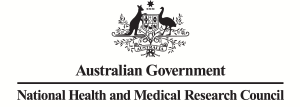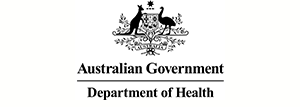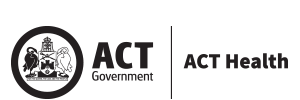Public health law: making it work for the prevention of chronic disease

Status completed
Start Date
End Date
South Australia was the first state in Australia to include NCD prevention provisions in its Public Health Act, however, these are not yet activated.
This project co-produced model codes of practice reflecting strong public health evidence to inform the activation of the NCD-prevention provisions. It also produced a framework for embedding NCD-prevention provisions within existing public health law.
Introduction
This project will continue to produce peer-reviewed publications beyond its funding end date.
Featured project resources
-
Toolkit for co‑producing public health law and policy
Resource category:Reports
Date -
Policy Development Handbook
Resource category:Reports
Date -
Using public health law to drive NCD prevention and environmental sustainability
Resource category:Videos
Date -
How can we use the law to help improve our health?
Resource category:Podcasts
Date
Featured project news
-
Tools for public health law and policy co‑production
News Category: Prevention Centre NewsDate -
Prevention Centre new leader appointed
News Category: Prevention Centre NewsDate -
The spectrum of research for public health law
News Category: Prevention Centre NewsDate
About
Developing codes of practice as a means of activating new non-communicable disease (NCD)-prevention provisions embedded within the South Australian Public Health Act 2011
Project titleWhat is the issue?
In 2011, South Australia became the first state in Australia to include non-communicable disease (NCD) prevention provisions in its Public Health Act. This means South Australia’s Minister for Health and Wellbeing is empowered to declare a NCD and issue a code of practice to prevent or reduce impact. However, these provisions have not yet been activated. This project, in collaboration with Wellbeing SA, an attached office to South Australia’s Department of Health and Wellbeing, will co-design codes of practice and process evaluations to inform new policy.
The Minister’s powers may be used to regulate how specific goods (sugar-sweetened beverages, for example), substances or services are advertised, sponsored, promoted or marketed, manufactured, distributed, supplied, sold or accessed by the public.
This is significant in stemming lifestyle-related chronic disease. The NCD chronic disease-prevention provisions are the first attempt to transform a core piece of public health law in response to Australia’s chronic disease epidemic including type 2 diabetes, stroke, cardiovascular disease and some cancers.
South Australia’s Public Health Act 2011 is an example of infrastructural public health law. These laws provide legal frameworks that empower or force public health agencies to act, by defining the scope of their powers and duties. Public health concerns contained in infrastructural public health law, such as core public health acts, have traditionally focused largely on sanitation and communicable disease.
How did the project address the issue?
This project was the first to attempt co-designing this aspect of the law and is, therefore, significant in exploring the contribution law can make in response to emerging public health issues. The project was a collaboration involving policy makers and a group of multidisciplinary public health experts forming a technical advisory group. The research collaboration played an instrumental role in realising the full potential of SA’s NCD-prevention provisions by co-producing codes of practice and a translation strategy aligned with Wellbeing SA’s priorities.
The Prevention Centre’s collaborative approach where researchers and practitioners work together at all stages of a research project, from problem conceptualisation to developing ways to improve practice, informed the research design. This collaborative project includes a technical advisory group with policy makers from Wellbeing SA, public health lawyers, and population nutrition and obesity researchers. Data collection methods included a workshop, legal and policy analyses, a stakeholder consultation, and process evaluation. The project’s design and methodology will be published as a study protocol to ensure rigour and transparency in public health law research.
Relevance for practice
The project will inform the activation of the NCD-prevention provisions by co-producing model codes of practice reflecting strong public health evidence. It will also provide a framework for embedding NCD-prevention provisions within existing public health law. The research findings will form a useful case study for other states and territories about the declaration of an NCD and the development of associated codes of practice. Long-term, the project will help reduce chronic disease through effective public health law and regulation, contributing to the creation of healthy environments.
Outcomes
The project produced new insights into how to undertake productive research collaborations with public health researchers, from establishing rules of engagement, to priority setting and formulating a research plan that meets the needs of policy makers and researchers. These insights will have cross-jurisdictional relevance for researchers and governments and will enable future policy partnerships.
The research also increased the collective knowledge about applied public health law research and how it can be used to investigate the potential of existing and future public health laws. It will empower policy makers to work with researchers to generate rigorous public health law research evidence needed to make policy decisions quickly and take effective action to improve the public’s health.
News and media
-
Tools for public health law and policy co‑production
News Category: Prevention Centre NewsDate -
Prevention Centre new leader appointed
News Category: Prevention Centre NewsDate -
The spectrum of research for public health law
News Category: Prevention Centre NewsDate -
Pandemic spotlight on legislative approaches to public health
News Category: Prevention Centre NewsDate
Resources
-
Toolkit for co‑producing public health law and policy
Resource category:Reports
Date -
Policy Development Handbook
Resource category:Reports
Date -
Using public health law to drive NCD prevention and environmental sustainability
Resource category:Videos
Date -
How can we use the law to help improve our health?
Resource category:Podcasts
Date
Publications
Other publications
Presentations
2020
- Day M. Designing and implementing codes of practice. PHAA Preventive Health Conference May 2020.
2019
- Shanthosh J. Oral research presentation. Public Health @ UNSW Symposium: Harnessing great science for public health impacts, 27 November 2019, UNSW Sydney.
People
Lead investigators
Project team
-
Professor Andrew Wilson AO
The University of Sydney -
Professor Lucie Rychetnik
The University of Sydney -
Professor Katina D’Onise
Wellbeing SA -
Nadia Mastersson
The Australian Prevention Partnership Centre -
Adjunct Associate Professor Chris Reynolds
University of Adelaide -
Professor Amanda Lee
University of Queensland -
Professor Boyd Swinburn
University of Auckland -
Professor Luke Wolfenden
University of Newcastle -
Professor Gary Sacks
Deakin University -
Dr Helen Trevena
NHMRC -
Maddie Heenan
The George Institute for Global Health -
Lisa Atwell Lisa Atwell has finished working with the Prevention Centre.
Wellbeing SA

























